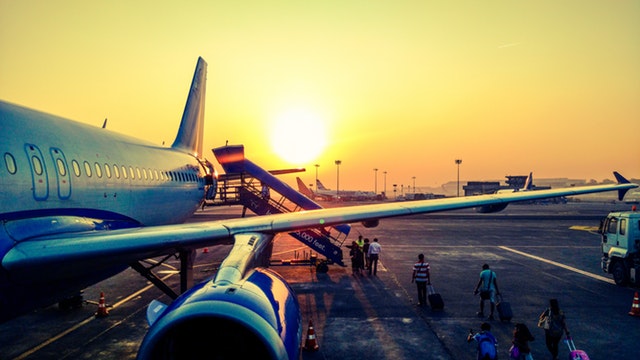Bad weather, mechanical issues, crew problems, other emergencies – all these things can delay or even cancel your flight. No one wants to be stuck at an airport but sometimes it happens. The following tips will help you reduce the chances of its happening to you and you help you survive the ordeal when it does.
Book a non-stop flight.
If you have a route with no stops, your chances of being stuck in some airport are greatly reduced. It’s not impossible that your flight will make an emergency landing, but that’s a very rare occurrence. With a non-stop flight, most problems will be either at your starting point or your final destination, and in both places you probably have options with respect to lodging and transportation. If you can’t book a non-stop flight, seek a trip with as few connections as possible to reduce your risk.
Don’t book the last flight of the day.
If you can, fly earlier rather than later during the day. If a problem occurs with an earlier flight, you’ll have the option to fly later. Arriving a few hours late is easier than having to find lodging mid-journey or to sleep on an airport floor.
Watch the weather.
You can’t predict problems with the crew or the planes, but you do know that snowy areas are more likely to have delays in winter, while coasts are more likely to be hit by hurricanes in summer. If you can, avoid flying through airports located in these areas. On the other hand, sometimes a storm takes a turn at the last minute, leaving an airport fully staffed but with hardly any passengers. In these situations the experience is great: no lines and plenty of employees with little to do but help you. So watch the forecasts, weigh your chances and make your choice about how to travel.
Carry emergency supplies.
Your carry-on bag should contain enough of what you need to get you through 24 to 48 hours of delays. You may not have enough room for your favorite furry bathrobe, but you should pack enough of your regular medications in your hand luggage. This will also protect you if your checked bags don’t arrive with you.
Stay charged. There’s nothing more frustrating than encountering an empty battery when you need to make texts or calls. Make sure your equipment is fully loaded before you start your journey, and take advantage of opportunities to recharge en route, either in the plane or in an airport. You may want to carry extra batteries, but if you do, check what is permitted in your carry-on in advance.
Be loyal.
Airlines do more for customers with more expensive tickets and for customers belonging to one of their premium loyalty classes, usually earned by previous journeys with the airline. These customers generally receive better service in terms of re booked flights, hotel vouchers and other perks. If you have an elite status with your airline and your trip runs into trouble, this is the occasion when it really pays off. Airline personnel should realize you’re special as soon as they enter your name or customer code into their system, but if they don’t, remind them.
Find a way to re book.
If your flight is cancelled, you have several different ways to get a new flight. You can speak to an airline representative in the airport. That person will be aware of the immediate local situation, and may help with hotels and meals as well as finding you a new route. However, if you see that the representative in the airport is completely swamped, you may do better by calling the airline’s toll-free number or even with chatting with someone online.
Consider alternatives best for you. The airline generally tries to put you on the next available flight to the original destination, under the assumption that this will please you best. However, only you can tell whether that’s the best solution. Perhaps you were supposed to fly to San Diego, but Los Angeles would do just as well. Perhaps the very next flight means arriving at an inconvenient hour and you would be better served flying a little later. The airline personnel, who may well be trying to get a hundred people on to the very next flight to the cancelled destination, will probably appreciate your flexibility.
Act quickly.
If your flight is cancelled, then many others may be vying with you for local resources. If you need a hotel or a flight, don’t hesitate to make arrangements. This is especially important for those who know that they will be in bad shape if they don’t. Of course, if you prefer to yield your place to a mother with a small child or someone in distress, do so.
Know your rights.
Airlines may not have to offer compensation to waiting passengers if the delay is due to weather, but if the situation was caused by them, such as no crew or a faulty airplane, you have more leverage. Get what you can: cash, a hotel room, or even meal vouchers to Lise in the airport. If you are bumped because the flight was oversold, you have even more rights, including compensation that depends on the amount of time delayed. Check the Passenger Bill of Rights available from the Department of Transportation if you are traveling in the United States to see the current rates of compensation. Usually, compensation is related to how much you paid for the ticket, which is a reason that passengers on awards tickets are first to be bumped.
Chat with fellow travelers.
When flights are cancelled, chances are that many others will share your fate. By talking to them (or by overhearing conversations) you may discover details about where to find food, lodging and other necessities. If you have the wisdom to share, do so, especially to the elderly or those with small children.
Flight delays happen, especially during the holidays. If you take the precautions and steps above, you can minimize the inconvenience and arrive safely, if a little late, at your chosen destination.








